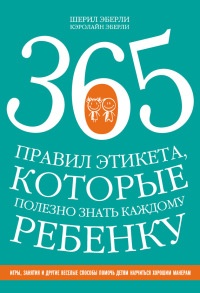Читать книгу "Как научиться учиться - Ульрих Бозер"
Шрифт:
Интервал:
Закладка:
Ericsson, K. Anders. «Training History, Deliberate Practice and Elite Sports Performance: An Analysis in Response to Tucker and Collins Review — What Makes Champions?» British Journal of Sports Medicine 47, no. 9 (2013): 533–535.
Huelser, Barbie J., and Janet Metcalfe. «Making Related Errors Facilitates Learning, but Learners Do Not Know It.» Memory & Cognition 40, no. 4 (2012): 514–527.
Klein, Gary. Seeing What Others Don't: The Remarkable Ways We Gain Insights. Kindle edition. New York: Public Affairs, Perseus Books, 2013.
Klein, Gary, Neil Hintze, and David Saab. «Thinking Inside the Box: The ShadowBox Method for Cognitive Skill Development.» Proceedings of the 11th International Conference on Naturalistic Decision Making. Paris: Arpege Science Publishing, 2013.
Muenks, Katherine, David B. Miele, Geetha B. Ramani, Laura M. Stapleton, and Meredith L. Rowe. «Parental Beliefs about the Fixedness of Ability.» Journal of Applied Developmental Psychology 41 (November 2015): 78–89.
Peary, Gerald, ed. Quentin Tarantino: Interviews, Revised and Updated. Jackson: University Press of Mississippi, 2013.
Protzko, John, J. Aronson, and C. Blair. «How to Make a Young Child Smarter: Evidence from the Database of Raising Intelligence.» Perspectives on Psychological Science 8, no. 1 (2013): 25–40. doi:10.1177/ 1745691612462585.
Rios, Kimberly, Zhen Hadassah Cheng, Rebecca R. Totton, and Azim F. Shariff. «Negative Stereotypes Cause Christians to Underperform in and Disidentify with Science.» Social Psychological and Personality Science (2015): 1948550615598378.
Schmidt, Richard A., and Robert A. Bjork. «New Conceptualizations of Practice: Common Principles in Three Paradigms Suggest New Concepts for Training.» Psychological Science 3, no. 4 (1992): 207–17. doi: 10.1111/j.1467–9280.1992.tb00029.
Steele, Claude M., and Joshua Aronson. «Stereotype Threat and the Intellectual Test Performance of African Americans.» Journal of Personality and Social Psychology 69, no. 5 (1995): 797.
Steinberg, Laurence. Age of Opportunity: Lessons from the New Science of Adolescence. Kindle edition. New York: Houghton Mifflin Harcourt, 2014.
Yan, Veronica X., Khanh-Phuong Thai, and Robert A. Bjork. «Habits and Beliefs That Guide Self-Regulated Learning: Do They Vary with Mind-Set?» Journal of Applied Research in Memory and Cognition 3, no. 3 (2014): 140–152.
1. Рассказывая о Джексоне Поллоке, я опирался на информацию из многих книг, в том числе: Henry Adams, Tom and Jack: The Intertwined Lives of Thomas Hart Benton and Jackson Pollock (New York: Bloomsbury Press, 2009), Leonhard Emmerling, Jackson Pollock (Taschen: 2003), and Deborah Solomon, Jackson Pollock: A Biography (New York: Cooper Square Press, 1987).
2. Caroline A. Jones, «Eyesight alone: Clement Greenberg's modernism and the bureaucratization of the senses», University of Chicago Press, 2005. Цитата о «контролируемой случайности» — из биографии Эммерлинга. Цитата о «великом моменте»: Jackson Pollock, American Letters: 1927–1947 (Polity, 2011).
3. Jackson Pollock and Lee Krasner Papers, «David Alfaro Siqueiros Letter to Jackson Pollock, Sandy Pollock, and Harold Lehman, 1936 Dec», Archives of American Art, Smithsonian Institution, 2016, http://www.aaa.si.edu/collections/items/detail/david-alfaro-siqueiros-letter-to-jackson-pollock-sandy-pollock-and-harold-lehman-13785 (дата обращения: 14.09.2016).
4. Anonymous, «Jackson Pollock; Is He the Greatest Living Painter in the United States?» LIFE, August 8, 1949.
5. Naifeh Steven and Gregory White Smith, Jackson Pollock: An American Saga (New York: CN Potter, 1989). Цитата о «хаосе» на той же странице — из Книги Соломона.
6. «Review: Drips, Dropped: Pollock and His Impact», New York Times, December 31, 2015.
7. Jennifer Ouellette, «Pollock's Fractals», Discover, November 1, 2011.
8. Ashley Kahn, Kind of Blue (London: Granta Publications, 2001). Я также цитирую и использую: Fred Kaplan, «Kind of Blue», Slate, August 17, 2009, http://www.slate.com/articles/arts/music_box/2009/08/kind_of_blue.html (дата обращения: 14.09.2016).
9. Keith Waters, The Studio Recordings of the Miles Davis Quintet, 1965-68 (New York: Oxford University Press, 2011).
10. Miles Davis and Quincy Troupe, Miles (New York: Simon & Schuster, 1990).
11. Claire E. Weinstein, «Training Students to Use Elaboration Learning Strategies», Contemporary Educational Psychology 7, no. 4 (1982): 301–11. Также см.: Michelene T. H. Chi et al., «Self-Explanations: How Students Study and Use Examples in Learning to Solve Problems», Cognitive Science 13, no. 2 (1989): 145–182.
12. Briana Mezuk et al., «Impact of Participating in a Policy Debate Program on Academic Achievement: Evidence from the Chicago Urban Debate League», Educational Research and Reviews 6, no. 9 (2011): 622–635.
13. Lauren B. Resnick, Education and Learning to Think (Washington, DC: National Academies, 1987).
14. Stephen Gorard, Nadia Siddiqui, and Beng Huat, Philosophy for Children: Evaluation Report and Executive Summary, July 2015 (London: Education Endowment Foundation, 2015).
15. Richard E. Nisbett, Mindware: Tools for Smart Thinking (New York: Farrar, Straus and Giroux, 2015).
16. Ellen Maguire, «At Jackson Pollock's Hamptons House, a Life in Spatters», New York Times, July 14, 2006.
17. Sian Beilock, How the Body Knows Its Mind: The Surprising Power of the Physical Environment to Influence How You Think and Feel (New York: Atria Books, Simon & Schuster, 2015).
18. Текст о симуляциях написан на основании моего старого текста: Ulrich Boser, «Gaming the System, One Click at a Time», Special Report: E-learning, U. S. News & World Report, October 28, 2002.
19. «Richard Feynman — Session IV», American Institute of Physics, https://www.aip.org/history-programs/niels-bohr-library/oral-histories/5020-4 (дата обращения: 16.09.2016).
20. J. F. Nestojko et al., «Expecting to Teach Enhances Learning and Organization of Knowledge in Free Recall of Text Passages», Memory & Cognition, 42, no. 7 (2014): 1038–48, doi: 10.3758/s13421-014-0416-z. Also see Catherine C. Chase et al., «Teachable Agents and the Protégé Effect: Increasing the Effort Toward Learning», Journal of Science Education and Technology 18, no. 4 (2009): 334–352.
Внимание!
Сайт сохраняет куки вашего браузера. Вы сможете в любой момент сделать закладку и продолжить прочтение книги «Как научиться учиться - Ульрих Бозер», после закрытия браузера.




